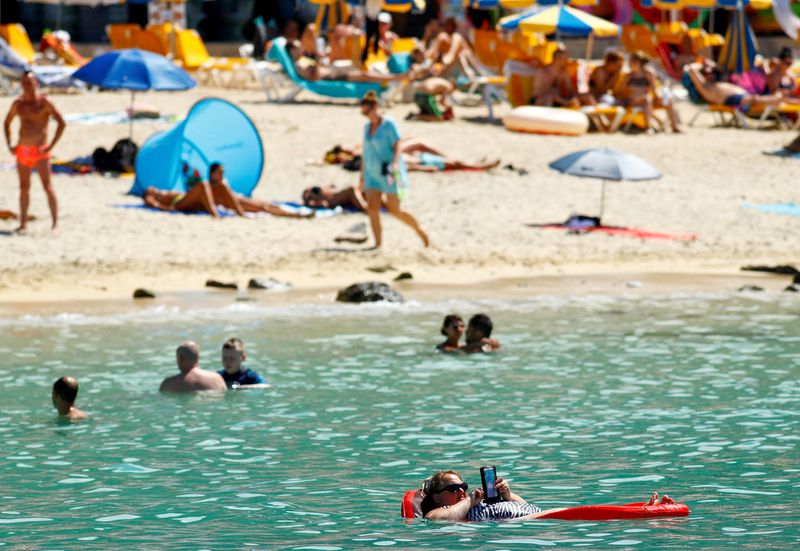MADRID (Reuters) - Spain's huge tourism sector will come close to reaching its pre-pandemic size in 2022, an industry association said, although the surge in the Omicron variant and supply issues will prevent a full recovery this year.
Spain was the world's second most visited country before the pandemic. Holidaymakers flocked to its beaches and historic buildings while trendy cities like Barcelona and Madrid were popular for short breaks.
Industry association Exceltur expects Spain's tourism gross domestic product to be worth 135 billion euros ($155 billion) in 2022, 88% of pre-pandemic levels, versus 57% in 2021, when a partial recovery of domestic tourism didn't offset a contraction in international travellers.
Activity would return to levels prior to the pandemic only in 2023, the group said.
With infections breaking records almost daily as the Omicron variant sweeps across Europe, Exceltur warned that a recovery in tourism was unlikely to start in earnest before April.
"Most business people are again postponing the full recovery of revenues to pre-pandemic levels to 2023, as a result of the triple impact of the Omicron, the energy and supply crisis at the end of 2021," Exceltur said.
Beaches and the countryside are expected to see a strong recovery while urban destinations, which are more dependent on international demand and business travel, expect a less intense recovery, it said.
If the forecasts are accurate, tourism will contribute to 10.5% of Spain's overall GDP, versus 5.5% in 2020 and the 7.4% Exceltur expects for 2021.

Spain's COVID-19 infection rate as measured over the past 14 days hit a new record of 3,128 cases per 100,000 people on Wednesday, a more than tenfold increase since the start of December.
($1 = 0.8721 euros)